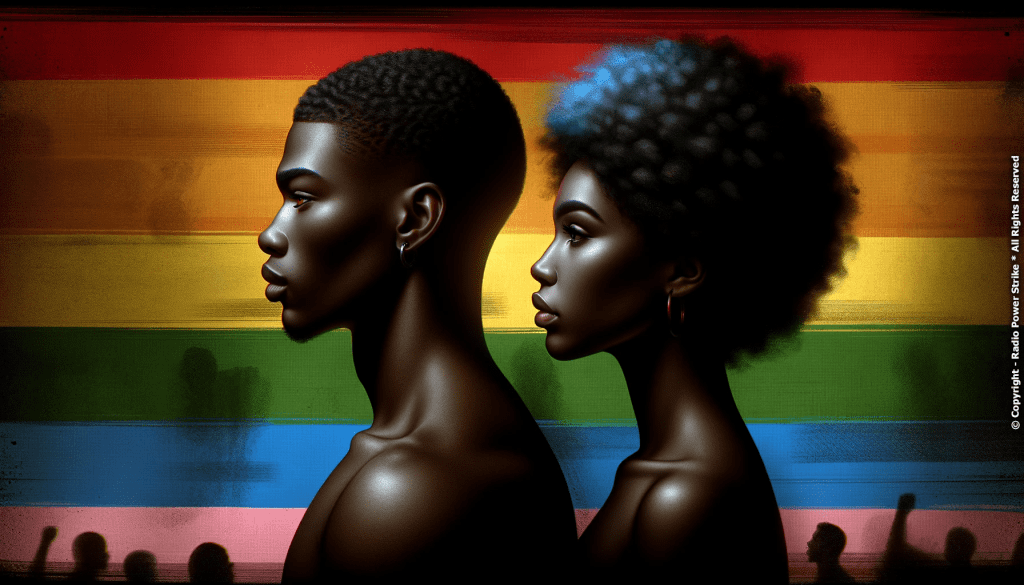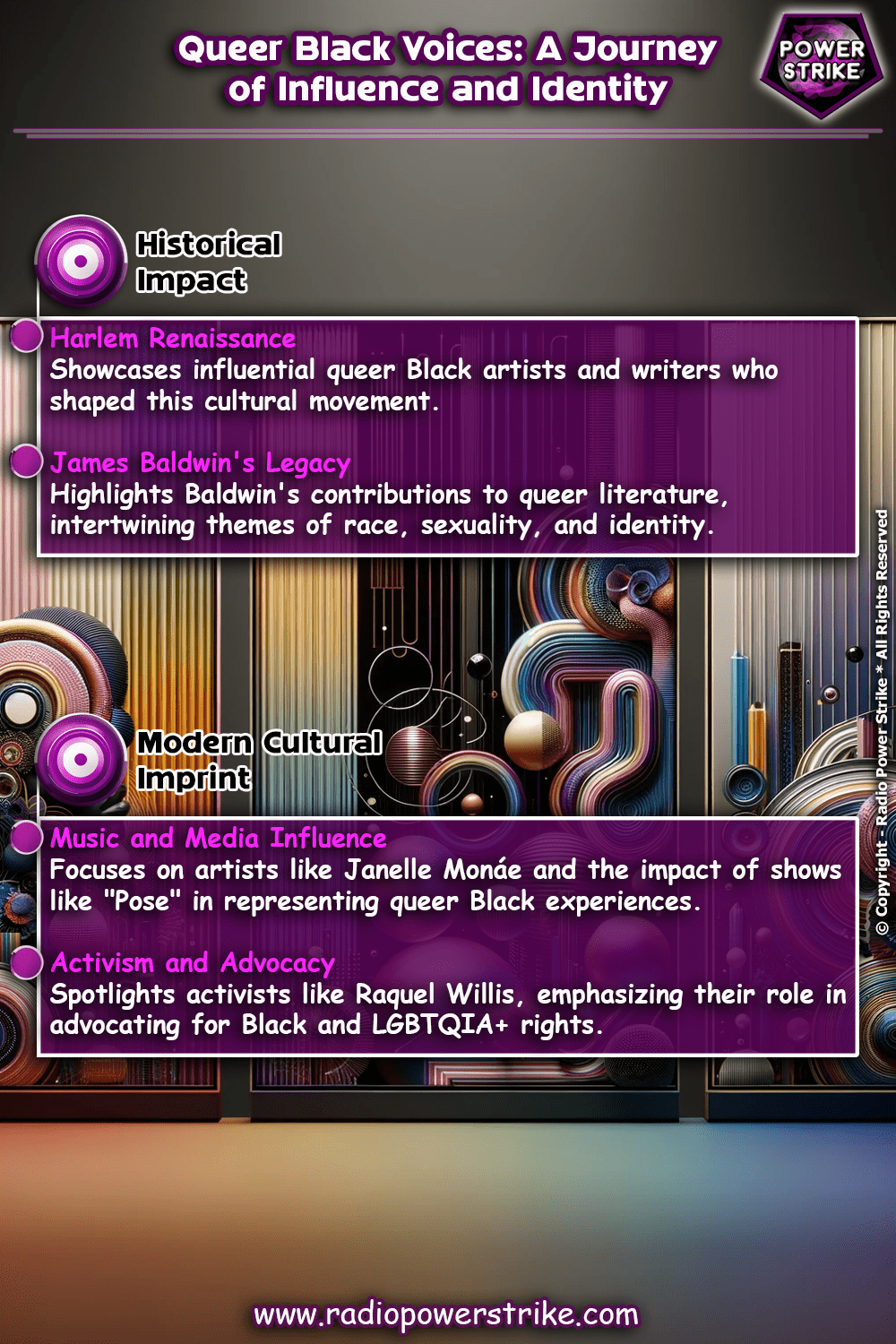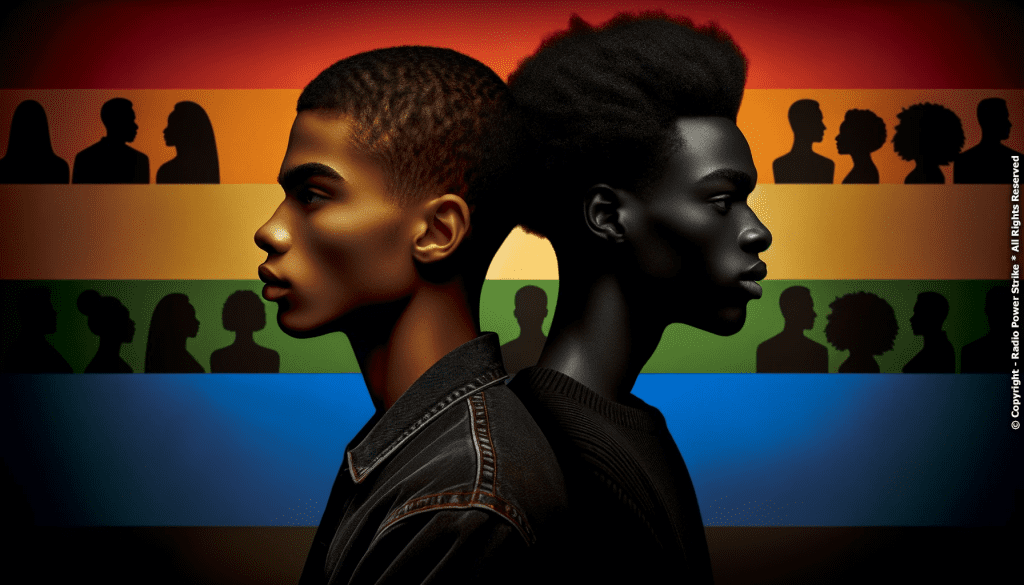Celebrating Queer Black Voices: Their Stories, Their Impact
Amplifying the Resonance of Intersectional Narratives in Modern Culture

Throughout history, queer Black voices have remained at the forefront of cultural, artistic, and social change. These individuals, navigating the complexities of both their racial and LGBTQIA+ identities, have paved the way for countless others. Recognizing their stories and their monumental impact allows us to appreciate the depth and breadth of their contributions.
The Historical Impact of Queer Black Voices
Historically, queer Black individuals have made significant contributions, even when faced with societal pressures from all sides. From the Harlem Renaissance, figures like Alain Locke and Claude McKay brought forth a fusion of queer and Black themes in their works, challenging contemporary norms.
Artists like James Baldwin defied categorization, weaving narratives that intertwined sexuality, race, and identity. His books, such as “Giovanni’s Room,” shed light on the queer experience in a way that was groundbreaking for its time.
Additionally, figures like Marsha P. Johnson played pivotal roles in LGBTQIA+ rights movements, ensuring that the voice of queer Black individuals was heard loud and clear during critical moments in history.
Modern Resonance and Cultural Imprint
In today’s world, queer Black voices continue to shape culture, art, and discourse. Musicians like Janelle Monáe and Frank Ocean challenge conventions and narratives with their work, earning acclaim and resonating with fans globally.
Television and film are seeing an influx of stories centered on queer Black experiences, with shows like “Pose” and movies like “Moonlight” earning critical acclaim and spotlighting these intersectional narratives.
Moreover, activists like Raquel Willis and Derecka Purnell are working tirelessly to bring justice and equality for both Black and LGBTQIA+ communities, highlighting the intertwined challenges and advocating for a more inclusive future.

Prominent Voices Leading the Way
As we celebrate queer Black voices, it’s essential to spotlight the figures leading the charge. Writer Roxane Gay offers incisive commentary on modern culture, race, and sexuality. Artists like Kehinde Wiley redefine portraiture, intertwining classical techniques with modern themes.
Furthermore, in the realm of sports and entertainment, figures like Billy Porter and Brittney Griner break barriers, inspire audiences, and redefine what’s possible for queer Black individuals in their respective fields.
By highlighting their achievements and stories, we amplify the broader message they bring – one of resilience, creativity, and unyielding spirit.
The impact of queer Black voices is immeasurable, spanning across history and influencing every facet of our culture. As we recognize and celebrate their stories, we bear witness to their undying spirit, their relentless drive, and the monumental change they’ve ushered into the world.


Comments are closed, but trackbacks and pingbacks are open.